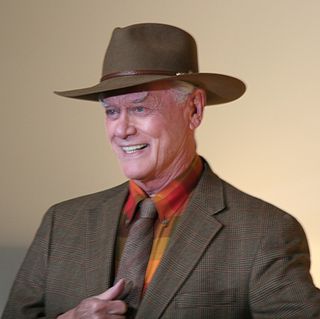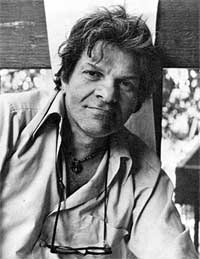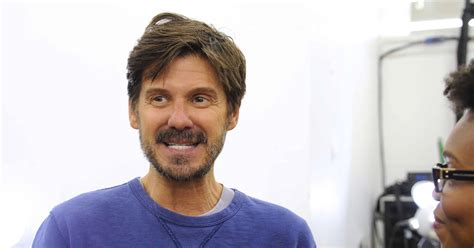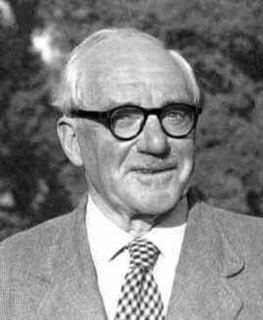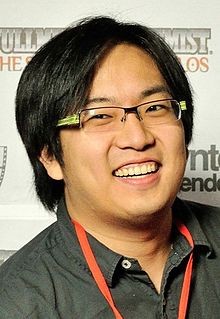A Quote by Wayne Dyer
For years I taught in universities and high schools for classes of 30 or 35 students. Now I teach in very large venues with thousands of people in the audience. I used to have notes. Now I just let go and let God. I just allow it to come, and I didn't do that before. I never even used the word "God" for twenty or twenty-five years. Now it just rolls out of my mouth all the time.
Quote Topics
Related Quotes
There used to be three networks, and now there are 40 million networks. There's a lot more competition out there, too. We would bring in 27 million people. Now, they're lucky if they have 17. I looked at the ratings, for the first time in 25 years, just to see, and there were 130 shows on. There used to be maybe 30.
You know we receive an education in the schools from books. All those books that people became educated from twenty-five years ago, are wrong now, and those that are good now, will be wrong again twenty-five years from now. So if they are wrong then, they are also wrong now, and the one who is educated from the wrong books is not educated, he is misled. All books that are written are wrong, the one who is not educated cannot write a book and the one who is educated, is really not educated but he is misled and the one who is misled cannot write a book which is correct.
This man, who for twenty-five years has been reading and writing about art, and in all that time has never understood anything about art, has for twenty-five years been hashing over other people's ideas about realism, naturalism and all that nonsense; for twenty-five years he has been reading and writing about what intelligent people already know and about what stupid people don't want to know--which means that for twenty-five years he's been taking nothing and making nothing out of it. And with it all, what conceit! What pretension!
I've noticed a fascinating phenomenon in my twenty-five years of teaching - that schools and schooling are increasingly irrelevant to the great enterprises of the planet. No one believes anymore that scientists are trained in science classes or politicians in civics classes or poets in English classes. The truth is that schools don't really teach anything except how to obey orders.
I want to become a superstar, but for that, I first have to be a super actorThe word 'superstar' these
days is used for anybody who delivers a Friday hit. Amitabh Bachchan and the Khans have worked for
many years. They have also given back to society. I am just 14 films and six years old in the industry.
I know I'll achieve it in a few years from now and I'm arrogant enough to say that,but now isn't the time.
People say there's delays on flights. Delays, really? New York to California in five hours, that used to take 30 years, a bunch of people used to die on the way there, have a baby, you would end up with a whole different group of people by the time you got there. Now you watch a movie and [go to the toilet] and you're home.
The justification - the idea that we have a right to invade another country and determine another people's destiny - is frightening. And I fear really for the future of that occupation. What happens now, and twenty years from now, and forty years from now, given our case? People in the United States may feel like when we don't see it on CNN twenty-four hours a day, it sort of disappears. But it doesn't disappear for the people who have to live under occupation - and their children and their children's children.
We'd start slow, the way we always did, because the run, and the game, could go on for a while. Maybe even forever. That was the thing. You just never knew. Forever was so many different things. It was always changing, it was what everything was really all about. It was twenty minutes, or a hundred years, or just this instant, or any instant I wished would last and last. But there was only one truth about forever that really mattered, and that was this: it was happening. Right then, as I ran with Wes into that bright sun, and every moment afterwards. Look, there. Now. Now. Now.




